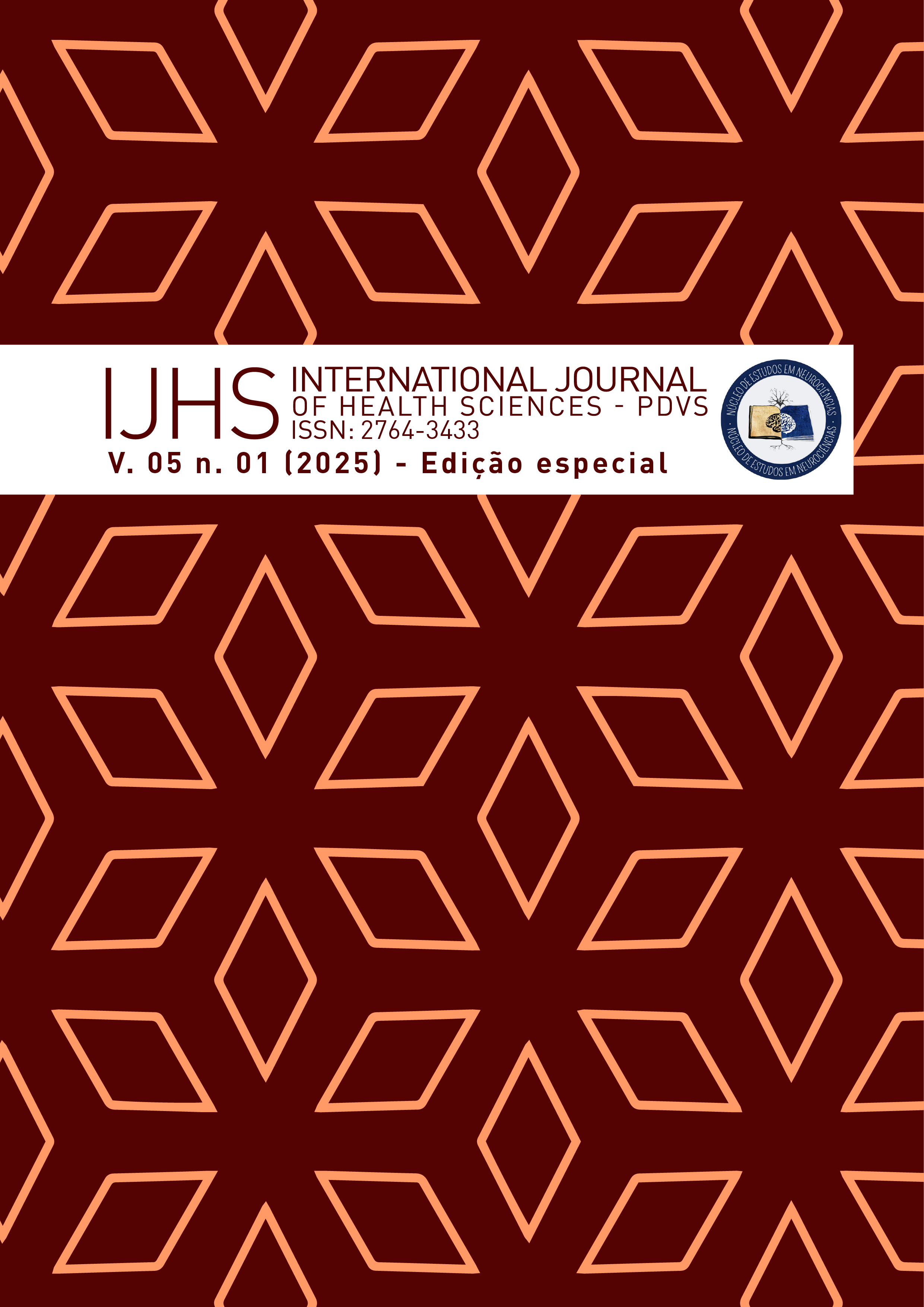IDIOPATHIC NORMAL PRESSURE HYDROCEPHALUS AND ITS INFLUENCE ON THE DAILY LIVES OF ELDERLY PATIENTS: A SYSTEMATIC LITERATURE REVIEW
DOI:
https://doi.org/10.31692/2764-3433.v5i1.292Keywords:
Normal pressure hydrocephalus, Aged, DiagnosisAbstract
Introduction: Hydrocephalus is a neurological condition characterized by the excessive accumulation of cerebrospinal fluid (CSF) in the cerebral ventricular system, compromising brain homeostasis. It can be classified as congenital or acquired, or as communicating, non-communicating, and normal pressure hydrocephalus (NPH). In turn, NPH is defined by CSF accumulation without elevated intracranial pressure and is subdivided into idiopathic (iNPH) and secondary (sNPH). Documented in 1965, iNPH is marked by the classic triad of gait disturbance, dementia, and urinary incontinence, with risks of underdiagnosis and inadequate treatment, particularly in elderly patients. Objective: Highlight the findings from research on iNPH with delayed diagnosis in the elderly. Material and Methods: This publication is a systematic literature review guided by the question: “How does the delayed diagnosis of Normal Pressure Hydrocephalus affect the daily lives of elderly individuals”. It were used the databases SciELO, Lilacs, PubMed, and Scopus with the following descriptors: “normal pressure hydrocephalus,” “aged,” and “diagnosis,” connected by the Boolean operator “AND.” A total of seven articles in English were selected for the discussion. Results and Discussion: The use of biomarkers, such as long-chain ceramides (Cers), can be essential for early detection of iNPH, in addition to the reiteration of imaging tests and indices for diagnostic use. Furthermore, by the time the disease is detected, patients are already at symptomatic stages, with gait disturbance being the most prominent sign. Therefore, studies evaluate the use of ventriculoperitoneal shunt in association with the practice of physical exercises for the treatment and improvement of gait in the daily lives of patients after the tap test procedure.. In addition to the classic symptoms, psychiatric symptoms, such as depression, anxiety, and apathy, were identified, which negatively impact patients' daily lives and complicate the diagnosis due to their similarity to other neuropsychiatric conditions. Conclusion: The differential diagnosis between iNPH and other neurodegenerative diseases remains challenging due to the dependence on symptom manifestation. The importance of studies on the impact of iNPH on patients' daily lives beyond the classic symptoms, such as gait disturbances, urinary incontinence, and cognitive deficits, is emphasized.

Downloads
Published
Issue
Section
License
Copyright (c) 2025 International Journal of Health Sciences

This work is licensed under a Creative Commons Attribution 4.0 International License.





